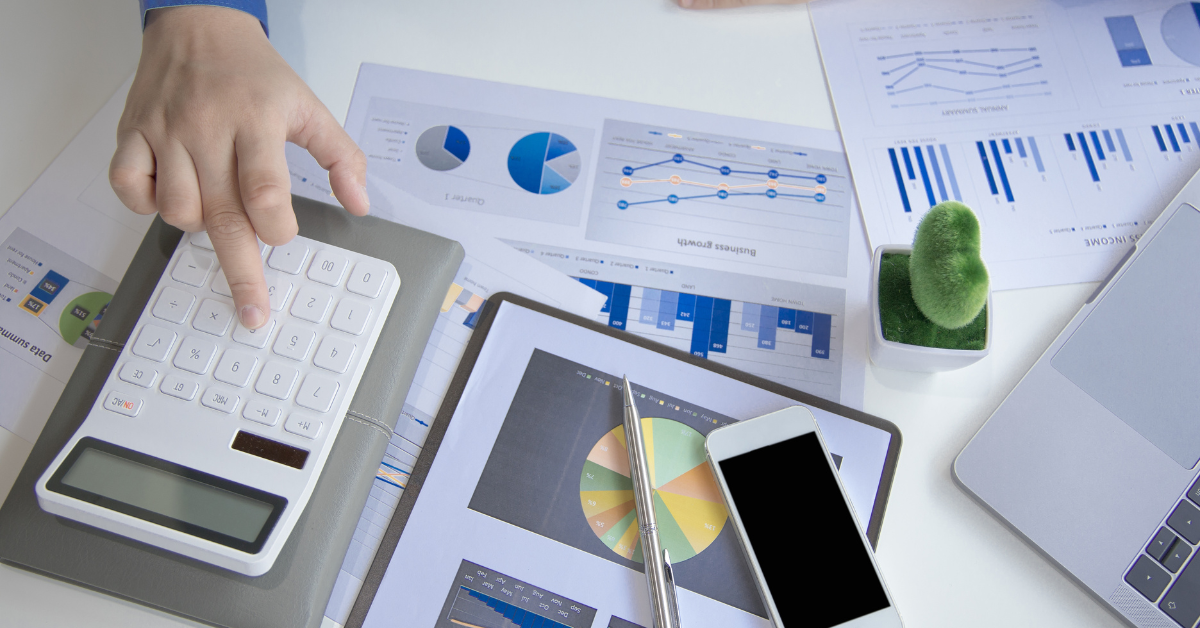What Is the Value of My Business? How to Quickly Appraise Your Business
There are many factors that go into determining how much money you could potentially make selling your business. These include the amount of work it takes to run the business, the location of the business, the market demand for the product/service, and the competition within the industry.
The value of a business varies depending on its current state and potential growth. If you want to sell your business, you need to determine what your business is really worth. You can do this by looking at the following questions:
1. What is the current value of your business?
2. Is there room for improvement?
3. Are you able to grow?
4. Can you find a buyer?
5. Do you want to continue running the business?

COMMON BUSINESS VALUATION METHODS
Earnings multiples are a measure used to determine the relative value of one company compared to another. They are calculated by taking a company’s net income and dividing it by the average stock price over the same period. Earnings per share (EPS) is simply EPS divided by the number of outstanding shares.
There is no single formula for computing an earnings multiple. Some analysts use the following formulas to calculate an earnings multiple:
1. Price/Earnings Ratio Net Income / Average Stock Price
2. Price/Sales Ratio Net Sales / Average Stock Price
3. Price/Book Value Ratio Net Book Value / Average Stock Price
4. Price/Cash Flow Ratio Net Cash Flows / Average Stock Price
5. Dividend Yield Annual Dividends Per Share / Current Market Price Per Share
Entry cost
refers to the initial investment required to start a new business. This includes things like purchasing property, buying inventory, hiring employees, etc.
Startup costs will vary depending on the type of business you want. For example, if it’s a retail business, you’ll likely spend more money on startup costs than a service business. If you’re looking to open a food truck, you could save some money by opting for a mobile kitchen over building out a brick-and-mortar restaurant.
Think about whether there are ways you can reduce the amount you spend on entry cost. For instance, if you don’t require much capital to operate your business, you might consider setting it up as an online store. You could even sell products via Amazon FBA (Fulfillment By Amazon).
Asset valuation
An asset valuation is a financial tool used to evaluate the value of a business. In some cases, it is used to determine how much money a buyer might pay for a business. However, there are many factors that go into determining the price of a business, including market conditions, industry trends, competition, and more.
A good accountant can help you decide whether you should sell your company or keep it. An asset valuation does not give you information about the future cash flows of your business. Instead, it provides information about the present worth of your assets. For example, if you own 1 million euro equipment, the value of that equipment is equal to the amount of money someone would pay today to buy it. This number doesn’t take into account the cost of replacing the equipment over the next five years. If you do replace the equipment, you could lose money because the replacement costs exceed the original purchase price.
Discounted cashflow
The discounting technique known as discounted cashflow analysis is one of the most popular methods for valuing companies today. In fact, it’s so common that there are many different ways to calculate DCF values.
Here we’ll take a look at how to perform a basic DCF valuation. We’ll start by looking at the formula and then move into some examples.
Industry valuations
In some industries, when businesses change owners on a regular basis, there are industry-wide rules of thumbs about how much companies are worth. These values are based on factors like revenue growth, profit margins, market size, and the amount of competition. But what happens when you take over a firm that operates within one of those industries? How do you calculate the fair price for it? This is where things get tricky.
The most common approach is to use a multiple of sales. So let’s say you buy a recruitment agency for £1 million. You plan to make £10 million per annum from it. Then you multiply that figure by 10 — because you want to factor in the fact that you’ll be making £100k more per year than the previous owner did. If you sell the business three years later for £2.5 million, you’d end up with a valuation of £25 million.
However, this method isn’t always accurate. For example, imagine you bought a recruitment agency for £500,000. You planned to make £50,000 per year from it. But you sold it six months later for £750,000. Now, you’ve got a valuation of just £250,000. This is because the multiplier doesn’t work out quite right.
Another problem arises when you look at a company that hasn’t been around long enough to establish a reliable track record. In this case, you might assume that the company’s future earnings potential is lower than normal. To avoid this pitfall, you could try using the average industry multiple or looking at comparable deals.
OTHER CONSIDERATIONS
The value of a business can be calculated in many different ways. These include:
• Market capitalization
• Price earnings ratio
• Discounted cash flow analysis
• Multiple expansion
• Net present value
• Liquidation value
Economic climate
Buying a business during an “economic downturn” is harder than buying a firm during a boom. There are fewer sellers and buyers are often less interested in selling a business. This creates a difficult environment for investors looking to enter the market.
When the economy is strong, however, there will be more companies willing to sell out, making it easier to buy one. A recession usually leads to lowered prices for firms, which makes it more attractive for potential buyers.
Fixed assets
are items such as buildings, machinery, vehicles and furniture that you purchase. You use them to run your business. They’re part of your total assets. And they’re important because they help generate cash flow.
You pay taxes on the amount of money you earn each year. But you don’t pay taxes on the cost of buying fixed assets. So it makes sense to try to recover those costs over time. This is called depreciation.
Depreciation is based on how long the item lasts. For example, a building might be built to last 20 years. If it’s used for 10 years, you’ve recovered 50% of the original cost.
But what about a car? Cars usually last longer than buildings. So cars generally have lower depreciation rates. A car might be expected to last 15 years. In that case, you’d recover 75% of the original cost over 15 years.
Intangible assets
The value of a company lies in its tangible assets – things like cash, buildings, equipment, etc. But what about intangibles such as patents, brand names, customer relationships, and goodwill? These aren’t necessarily physical items, but they’re just as important to a company’s future success.
Intangible assets are often overlooked in financial reports because they’re difficult to quantify. However, they’re crucial to a company’s long term growth. If you’ve ever bought a product online, chances are it came with some sort of guarantee. You know that the seller won’t take it back if something goes wrong, and you’ll probably buy again from that site. This is called “goodwill.” Companies use goodwill to account for the fact that customers don’t always make purchases based solely on price. Instead, they consider factors like how well a company treats its employees, whether it offers good customer service, and even whether it makes quality products. Goodwill isn’t a number; it’s a feeling. And companies that do well tend to build up goodwill over time.
Reason for sale
is one of the most important factors in determining price
A recent study found that buyers are willing to pay up to 10,000 euro for a home if it includes a “reason for sale.” In fact, the study showed that sellers who include a reason for selling in their listing could increase their sales price by 5% to 15%.
This information is particularly useful for real estate agents trying to sell homes with multiple owners. If you’re working with a client whose house is worth less than what she wants to sell it for, consider including a reason for selling in your listing. This way, potential buyers will understand why the owner is looking to move and give her extra incentive to make the deal happen.
If you’re selling your own home, here are some things to keep in mind when thinking about adding a reason for sale to your listing.
1. Be honest
Don’t try to hide something just because it makes you feel better. Potential buyers don’t care about your personal reasons for wanting to sell — they want to know the facts. So if you’ve been struggling financially, tell them. Or if you’re planning to retire soon, let them know. But don’t lie. You’ll look desperate and untrustworthy.
2. Think about timing
You might think that writing a reason for sale is a good idea no matter where you live, but it’s especially helpful if you’re moving away. For example, if you’re relocating to another state, you might write down the reasons why you’re leaving. This gives potential buyers insight into your life outside of the home.
Reality
The word reality is everywhere. In fact, we hear it every day. But do you really understand what it means? We often use the term without thinking about exactly what it means. So today we’re going to take a look at some common definitions of the word, and see how they apply to your business.
What Is Reality?
According to Merriam-Webster, reality is “the state or quality of existing independently of human thought or perception.” While this definition might seem simple enough, there are many different meanings associated with the word.
In one sense, reality is simply the way things actually exist. If you want to find out whether something exists, you must go outside yourself and observe it. You cannot determine whether something is real just by looking inside yourself.
However, another meaning of the word is “what is true,” or “something that actually happens.” When someone says, “I don’t believe in ghosts,” he or she is saying that no ghostly apparitions ever happen. Similarly, if you say, “I don’t think my boss likes me,” you mean that you haven’t seen him or her act in a way that suggests otherwise.
So while the first definition of reality refers to what is happening now, the second definition refers to what happened in the past.
Frequently Asked Questions
What Makes A Business Valuable?
The value of a business depends on many factors, including the ROI it provides to buyers. If you are looking to sell your business, there are three main components that determine how much someone is willing to pay for it. These include the risk involved, the return on investment (ROI), and the predictability of the key drivers of new sales.
When determining the value of a business, consider the following:
– How predictable are the key drivers of new revenue?
– What is the stability of the traffic coming into the site?
– Is there a stable supply chain?
– Does the business have a strong brand presence?
– Can the buyer use the site as a reference?
How to quickly work out the value of your business
You’ve probably heard people talk about “the value of your business”. But what does it actually mean? And how do you go about working out the figure? We take a look at three common valuation methods – the market approach, the discounted cash flow method, and the income approach – and explain why each one works best in different situations.






